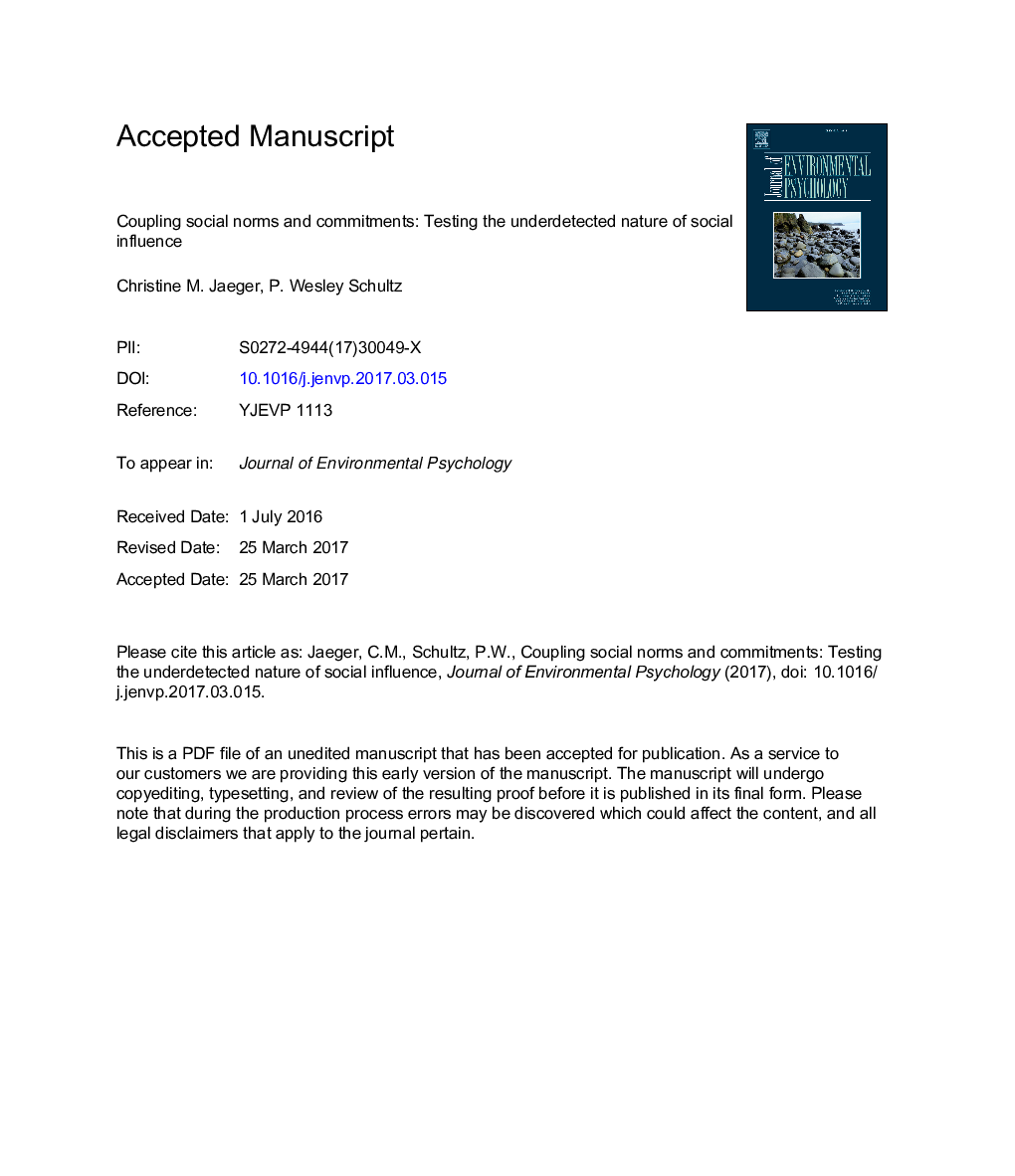| Article ID | Journal | Published Year | Pages | File Type |
|---|---|---|---|---|
| 5034851 | Journal of Environmental Psychology | 2017 | 35 Pages |
Abstract
Normative information has shown success in promoting proenvironmental behavior. Research suggests that its influence is largely underdetected, with recipients widely underestimating its impact. Consequently, behavioral changes induced by normative information should be perceived as intrinsically motivated. This hypothesis was tested with a commitment-making procedure, where intrinsically motivated commitments tend to produce relatively long-term behavioral changes and extrinsically motivated commitments tend to produce relatively short-term changes. In a field experiment, 8876 households under drought restrictions were randomly assigned to receive restriction information, a strong warning, or normative information communicating community compliance to restrictions. Subsets of households in the latter two conditions were asked to commit to adhering to water restrictions. Immediate reductions were evidenced for committers that received either a strong warning or normative information, but only committers that received normative information showed longer-term reductions in water use. These findings support the claim that normative influence's underdetected nature promotes intrinsic motivation.
Keywords
Related Topics
Social Sciences and Humanities
Psychology
Applied Psychology
Authors
Christine M. Jaeger, P. Wesley Schultz,
